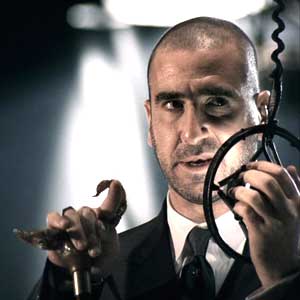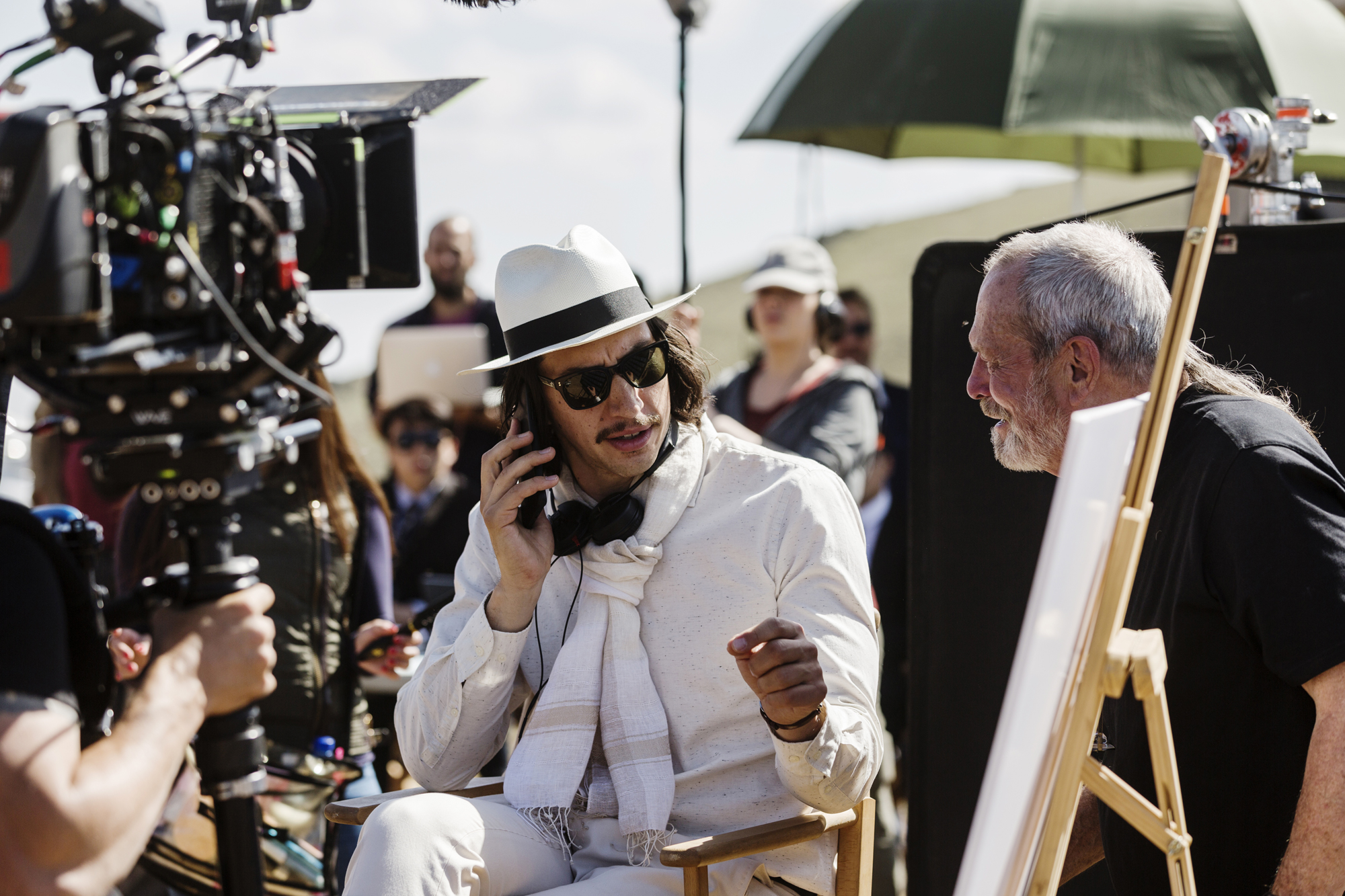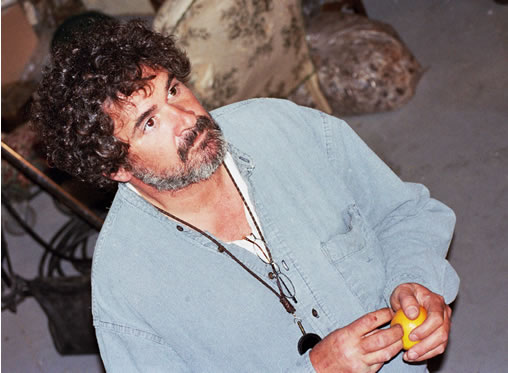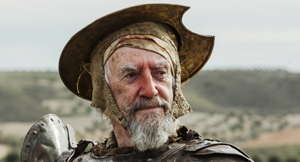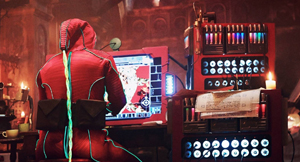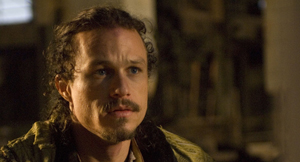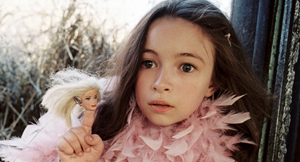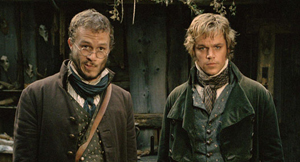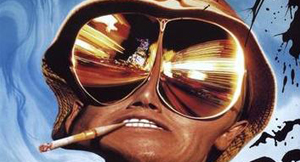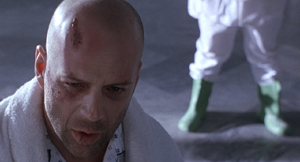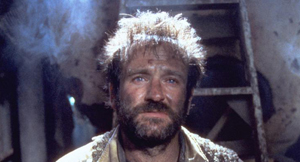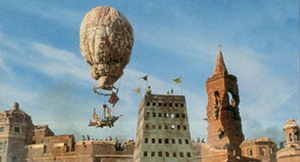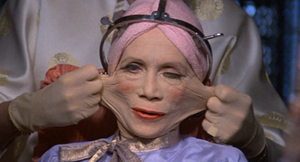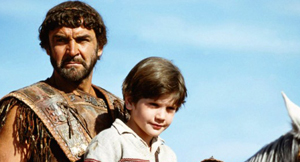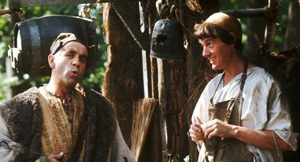In March 2017, the production of Terry Gilliam’s The Man Who Killed Don Quixote moved to the Convent of Christ at Tomar, Portugal. Stellan Skårsgard joined the production here for his second visit. In the scenes shot here, Skårsgard’s character, The Boss, is a key part of the celebrations at the Mishkin Palace.
On a beautiful evening outside the convent, just before a night shoot, the actor spoke to Phil Stubbs about his role in Gilliam’s production.
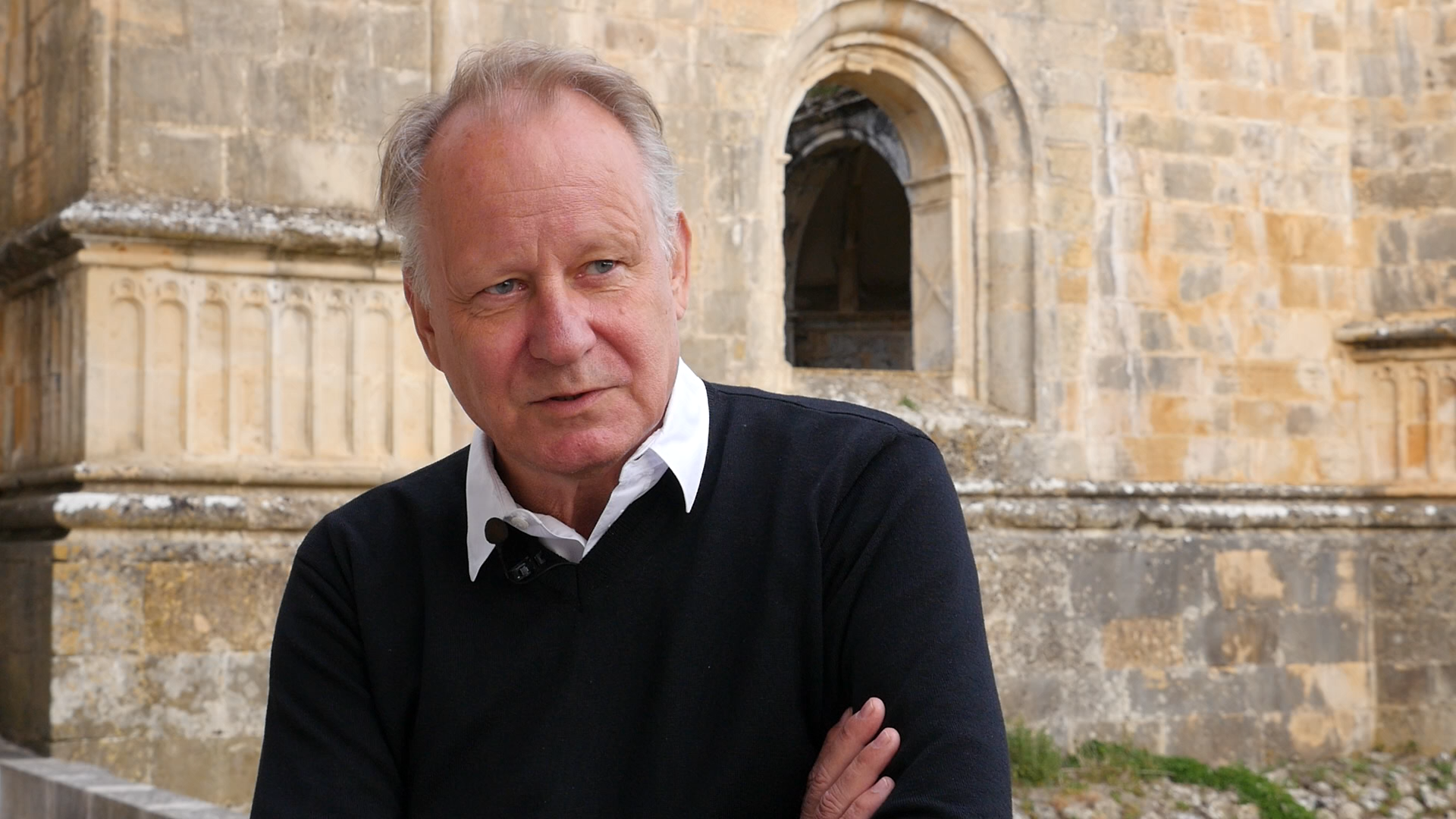
Phil Stubbs: Tell me about your character in the film
Stellan Skårsgard: You always get a questions to describe your character but it’s very hard when you haven’t seen the film. Because often you try to produce different colours in every take. So the director can create his own version.
But basically his function is to be another threat to the main character Toby. He’s the boss. He’s the boss of this advertising agency. He’s a businessman. He’s not evil, he’s not good but he’s very pragmatic. Of course he does not give a shit about people who comes in his way. But he’s also… Toby is his protégé and he really believes in Toby’s qualities. So he’s very protective of him, probably a little threatened too.
What scenes are you shooting here at Tomar?
I think we are spending three weeks here at Tomar shooting a party so it’s quite a party. The party is a Russian oligarch, and I am trying to clinch a deal to advertise his vodka. There’s a lot of things happening. Everybody is here, all the characters in the film are here. At the same time with 50 extras, some horses, and probably some other animals too.
What did you think of the script when you first read it?
The script was very Terry. I liked it of course. I like his universe, or his universes, you could say. He makes films that doesn’t look like anybody else’s films. It’s always fun to find material that looks like a film you haven’t done before, or read before. Most scripts tend to be attempts to make films that I’ve seen. But not Terry, so it was great reading it. But I would probably have taken the role even if I hadn’t liked the script because I wanted to work with Terry.
What are the themes that resonate with you?
Like all of Terry’s films, the script it very funny but it’s also very sad and dark. But it’s propelled by his humanism that all his films are. It’s not totally politically correct, but it’s based on something more important than that. A slightly sad love for humanity and being able to absolutely at any point being able to laugh at humanity
How did you prepare for the role?
I try to learn my lines and it’s really fucking boring. When I was at school I couldn’t wait to grow up so I wouldn’t have any homework to do and then I became an actor it’s all homework and it’s really boring. When I prepare for a role I always, the first thing I try to figure out is what is necessary for the role for the film, so the film benefits from what I am doing – and that becomes a framework and then I try to be as free as possible within that frame.
I did not work as an advertising boss for three months to become the character and I hopefully never become this character!
Could you tell me about your costumes?
Today I am for the first time putting on the renaissance costume. I don’t mind it. I’ve done Shakespeare on stage but the boss I am playing – he definitely feels uncomfortable in it. I will play uncomfortable for the next two weeks, in this costume.
Do you find that previous roles help you find a character, or do you start anew, fresh each time?
You always start anew but you always steal from other characters. Experience but every project is totally new it’s not easier the more you’ve done because you always start from the beginning. But that’s also the thrill of it. But you are just as nervous when you are my age as I was when I was 20. Probably more nervous because you are stupid when you are 20.
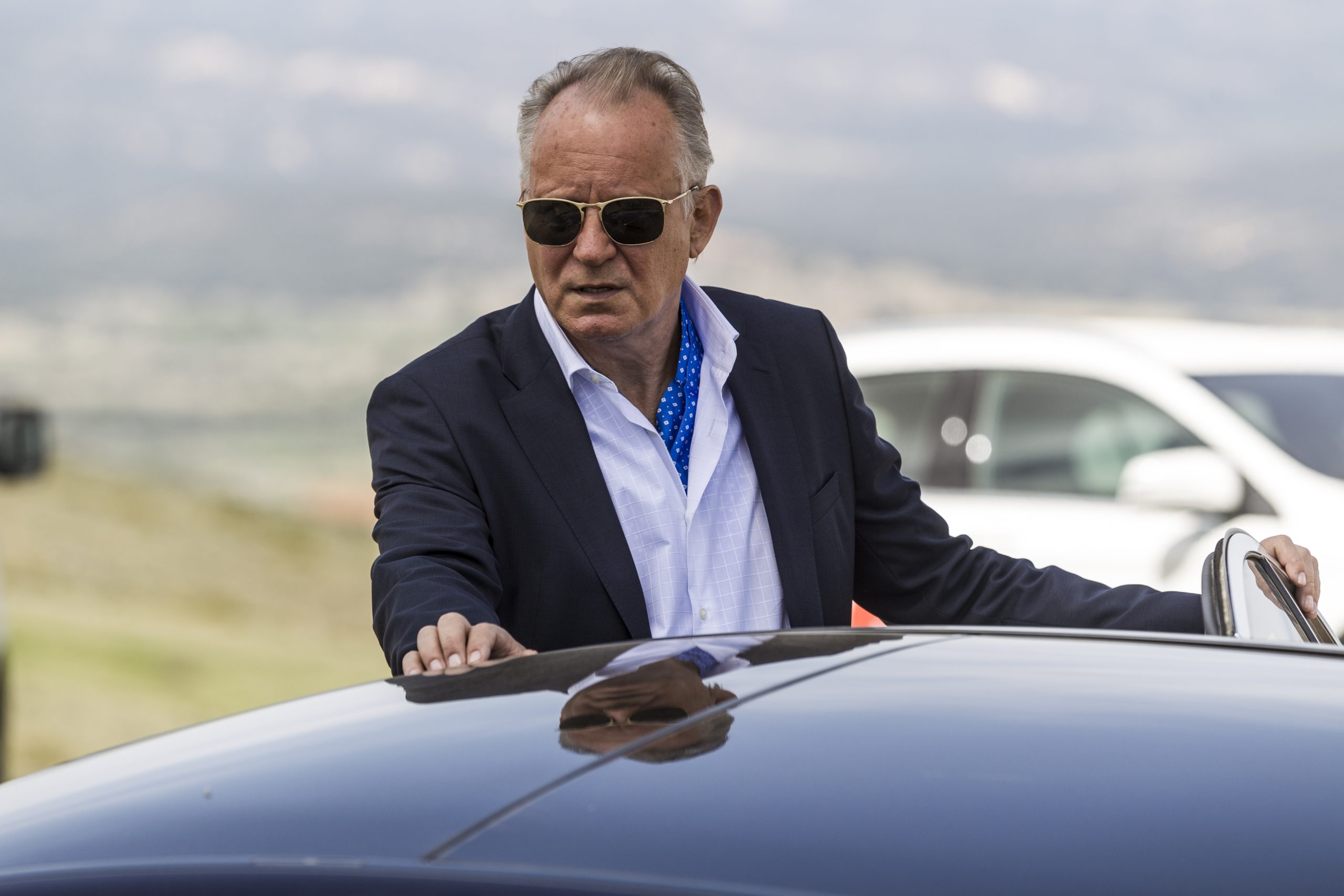
Do you have to ride a horse?
No – thank god. I don’t have to ride a horse. I’ve been riding horses in many films and I always fall off at one point or another. And I’m so happy I don’t have to either ride horses or play tennis in this film. Horses are frightening things.
How is Terry on set – different and unique?
Every director is different, he knows what he wants but he still listens and he is very open to suggestions and he wants the process of making the film to be a creative process. It’s very much alive all the time. Of course he’s very funny and cheerful, enthusiastic which makes everyone very happy.
I didn’t take the job for the role, there’s not much to do really. I took the job of course to hang out with Terry and have fun. For four weeks, the process and the work itself was more and more important than the final product. It’s playing – desperately trying not to grow up.
Favourite location?
So far I’ve only been on one location and that was Avila. It was beautiful of course. And now we’re here in Portugal. I’ve never been to Portugal before and I’ve just spent two days in Lisbon, a beautiful city. It’s very handy, it’s so compact – the old part at least – even if it is built on seven hills. You can take a walk and it’s basically a climb not a walk. The architecture and everything is beautiful. This place [Tomar] is stunning, this monument over stupidity.
To what extent does Terry resemble Cervantes’s Don Quixote?
You could say of course that Quixote is partly Terry, and Terry is partly Quixote. The amount of windmills that Terry has been fighting throughout his life, I think he has done more than Quixote. But it’s also the poetry and the fantasy of Quixote’s life. But also Toby who in this film who is struggling with producers and advertising people, and trying to be creative in a very harsh environment. And I’m not helping him.
To what extent is Cervantes character relevant today?
It’s a fantastic book, its beautiful literature. I don’t think it has aged that much. We constantly have discussions about the importance of alternative realities and alternative facts. But Quixote’s alternative reality is a beautiful dream in a world that cannot live up to his dreams. I found it very human, understandable quite beautiful. But also dreamers can be very dangerous.
What have you been most happy with?
I’ve only worked a couple of days so far. I’m really happy that I remembered all my lines on the first day. I’m really happy that I click with Terry and that we have fun together and good things come out of it. It’s a lot of social aspects to filmmaking because it’s so much collaboration so you have to be able to function well together. I’m very happy so far but now I’m going to have to sit here and have one line a day for three weeks so we’ll see how patient I am in three weeks…



